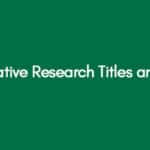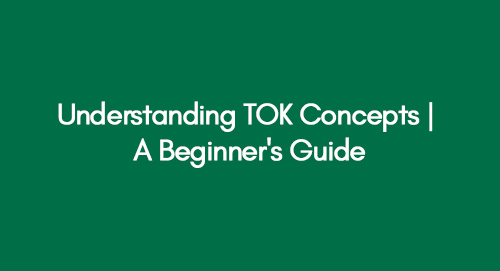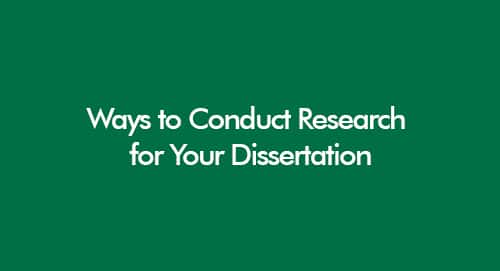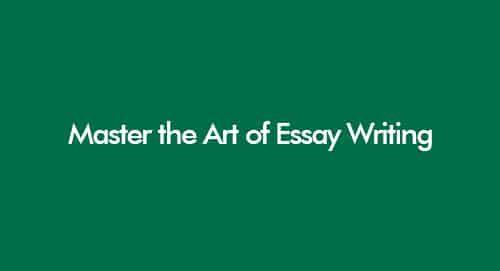
Quantitative Research Titles and Topics (2026)
February 26, 2024
70 Visual Aid Speech Topics for Your Next Presentation
April 4, 2024TOK is an abbreviation for Theory of Knowledge. It is a subject that explores how we learn things and how we can make certain about what we know. The Theory of Knowledge (TOK) essay is a significant challenge in the International Baccalaureate (IB) diploma programme. Its purpose is to encourage students to think critically about knowledge and how to obtain it. The goal is to develop their ability to question, evaluate, and analyze information from various perspectives.
Need Help with Academic Writing? Get a Response within 24 Hours!
To succeed in your academic journey, it's important to understand what are the TOK concepts. and what is the foundation of this type of writing? In this beginner's guide, we'll explore these key TOK concepts to help you get started.
TOK Key Concepts Explained
Here, are the 12 TOK concepts briefly explained below;
- Certainty: To be certain means to have confidence in an idea. It's important to consider all the factors and variables to establish complete certainty. When determining certainty, it's essential to take a comprehensive approach.
- Culture: Culture refers to how things are done in a particular society. It provides insights into human behaviour and societal influences.
- Evidence: When writing a TOK essay, it's important to provide evidence to support your claims and arguments. This evidence is needed to validate what you're saying. To do this, you must follow a specific framework. In essence, the evidence you present gives your essay credibility and helps convince your reader that your claims are true.
- Explanation: To help readers understand writing better, it's important to explain and clarify the ideas and concepts being presented. This involves tailoring the information to the specific audience and using simple, direct language that flows easily. The most important information should be presented first, and sentences should be kept short and to the point. Avoid using complicated or technical terms, and instead use everyday language that is easy to understand. Use the active voice to make the writing more engaging and clear.
- Interpretation: Understanding information from different angles is known as interpretation. It involves analysing and comprehending data using various perspectives.
- Justification: Justification entails furnishing valid reasons or explanations for arguments and stances taken within the essay.
- Objectivity: Presenting information without personal influence or bias is called objectivity. It is important to consider the target audience and their needs when writing information. The text should be organized logically, starting with the most important information. Sentences should be kept short and only include necessary details. It is better to use simple and familiar words instead of jargon, acronyms or legal language. Plain language prefers the use of verb forms instead of noun forms for clarity. Use active voice to make the subject do the action of the verb.
- Perspective: Considering different perspectives is an important aspect of exploring topics within the TOK framework. It involves looking at various viewpoints and angles to gain a deeper understanding. When creating text, it's important to keep in mind the intended audience and provide information clearly and concisely. To achieve this, the text should be organized logically, with the most important information presented first. Sentences should be kept short and only include necessary information, avoiding long, complicated sentences that can be difficult to understand. Simple and familiar vocabulary should be used, avoiding jargon, acronyms, and legal language. The active voice should be favoured to increase clarity and make the text more engaging.
- Power: Authority and control can have a significant impact on decision-making processes and knowledge. This impact is referred to as power.
- Responsibility: When it comes to acquiring and sharing knowledge, we have ethical obligations and responsibilities. This includes considering the potential impacts and consequences of our actions. We should ensure that the information we share is clear, concise, and easy to understand. By using simple, everyday language and organizing the information logically, we can ensure that our message is well received by our intended audience. It's important to keep sentences short and to the point, using the active voice whenever possible to make our message more clear.
- Truth: The concept of truth is subjective and can be interpreted differently in various contexts. Truth probes into this notion, exploring its diverse interpretations.
- Values: The values we hold, such as our moral, ethical, and cultural beliefs, influence how we create, perceive, and share knowledge. It's important to consider our audience when communicating information, as different people have different needs. To make the text easy to understand, we should organize it logically, put the most crucial information first, and keep sentences short and to the point. We should use simple and familiar vocabulary, avoiding acronyms, jargon, and legal language. Additionally, we should use the active voice to make the text more clear and concise.
Hence, TOK terminology encompasses a range of IB key concepts that help students navigate the complexities of knowledge acquisition. The TOK framework encourages students to consider different areas of knowledge, including natural sciences, human sciences, mathematics, history, the arts, ethics, and indigenous knowledge systems. Understanding key concepts in TOK is crucial as they provide meaning and context to our exploration of knowledge and its applications.
Writing an Effective TOK Essay
Crafting a TOK essay involves several essential steps that need to be followed;
Analyse the Prescribed Title: When writing an essay, it's important to understand what the prompt is asking you to do. This will help you explore the topic effectively. To do this, you need to consider your audience and what information they need to know. Keep your sentences short and only include the necessary information. Long sentences can be confusing and make it hard to understand your main point. Use simple and familiar words instead of jargon or legal language. Use the active voice to make your writing clear and direct. Remember to prioritize the most important information and present it first.
Choose a Title: When you're selecting a title for your project, make sure it's something you're interested in and that allows you plenty of opportunities for exploration. It's also important to present information logically, with the most important details coming first. Keep sentences short and only include necessary information to avoid overwhelming your reader. Use common, easy-to-understand language rather than technical jargon or complicated terminology. Additionally, try to use active voice to make your sentences more clear and direct. Remember, the main goal is to make your text easy to read and understand.
Study the Brief: To write successful IB TOK concepts, it's important to be familiar with the grading criteria. Make sure you understand what's expected to do well.
Begin Researching: To explore a topic, start by generating ideas and doing thorough research. It's important to consider your audience and provide information that meets their specific needs. Arrange your information logically, with the most important points presented first. Keep your sentences short and focused, and use everyday language instead of jargon or legal terminology. Use active voice to clarify your message. Remember, the goal is to communicate your ideas clearly and concisely.
Create an Outline: When writing an essay, it is important to keep your audience in mind. Different people have different needs and require different information. To communicate effectively, you should organise your essay logically, with the most important information presented first. Be sure to use short sentences that contain only necessary information. Long, wordy sentences can obscure the main point. Use simple, familiar language instead of acronyms, jargon, or legal language. To increase clarity, use the active voice, where the subject does the action of the verb. By following these guidelines, you can ensure that your essay is easy to read and understand. Remember to structure your essay with a compelling outline that flows coherently and logically from one to the other.
Write an Introduction: Different audiences have different needs, so it's essential to include only the necessary information and present it in a logical order. Start with the most important information and keep sentences short and direct. Avoid using long sentences that may confuse your reader.
Write the Body: When presenting a topic, it's important to effectively convey arguments, counterarguments, and comparisons to showcase a deep understanding of it. To achieve this, it's crucial to consider your audience and include the necessary information logically and concisely. Start with the most important information and keep sentences short to avoid confusion. Use everyday language and avoid jargon, acronyms, and legal language. Use the active voice to increase clarity. Remember, the goal is to communicate your understanding of the topic clearly to your audience.
Craft a Conclusion: To end your theory of knowledge concepts, bring together the main ideas, answer the Knowledge Question (KQ), and connect them to other areas of knowledge concepts TOK. Evaluate claims and counterclaims, connect mini conclusions from each paragraph, and summarise the essay while linking back to the TOK title with an effective conclusion.
Cite Your Sources: When you write an essay, it's important to acknowledge any sources you used. This shows that you're not taking credit for someone else's work. Make sure to give credit where it's due by referencing your sources appropriately.
To create a great TOK essay, master these steps and TOK core concepts. This will enhance your critical thinking and analytical skills. Use clear and concise language, focus on the most important information and use an active voice to engage your reader.
FAQ's
Final Thoughts
To write an effective TOK essay, students need to follow a few essential steps. Firstly, they should analyze the prescribed title and study the brief. Then, they must conduct thorough research, create an outline, and write an introduction. After that, they should develop the body of the essay, craft a conclusion, and properly cite their sources. By mastering these steps and understanding the TOK core concepts, students can enhance their critical thinking skills, which will help them tackle academic and real-world challenges with ease.
Get 3+ Free Fashion Dissertation Topics within 24 hours?



























